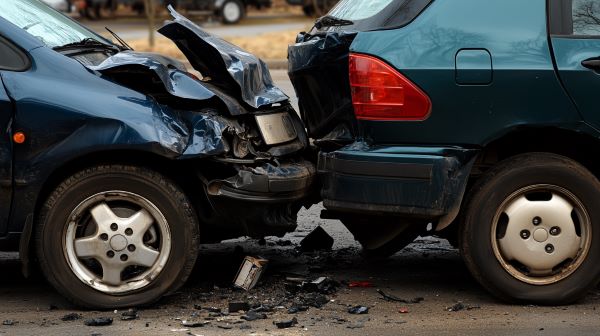Can Liability Insurance Help If Someone Hits Your Car?

If someone hits your car and you only have liability insurance, you might be wondering what happens next. Liability insurance is a common type of coverage, but it can be confusing when you’re involved in an accident caused by someone else. In this article, we’ll break down what you need to know about liability insurance, what it covers, and what steps you should take if your car is hit.
Will My Insurance Cover the Damage to My Car?
Liability insurance only covers damage you cause to other people’s property or injuries you cause to others in an accident. Unfortunately, if someone else hits your car, your liability insurance won’t pay for the damage to your vehicle. You would need something called collision coverage to have your car’s repairs covered in this situation.
Who Pays for the Repairs to My Car?
If the other driver is at fault, their insurance should cover the cost of repairing your car. This is known as the at-fault driver’s property damage liability insurance. You’ll need to get their insurance information and file a claim with their insurance company.
What Should I Do If the Other Driver Doesn’t Have Insurance?
If the driver who hit you doesn’t have insurance or their insurance isn’t enough to cover your repairs, things get trickier. You might have uninsured/underinsured motorist coverage as part of your policy, which would help cover the costs. However, if you don’t have this extra coverage, you may need to pay for repairs yourself or take the other driver to court.
Can I Sue the At-Fault Driver for Damages?
Yes, if the other driver doesn’t have enough insurance or refuses to pay for your damages, you can sue them in civil court to recover the costs of repairing your car. This can take time and money, so it’s something to consider carefully.
What Steps Should I Take After the Accident?
After the accident, there are several steps you should take:
- Call the police to file a report. This can be important for insurance claims and any future legal actions.
- Exchange information with the other driver, including insurance details.
- Take photos of the damage and accident scene.
- Contact your insurance company to report the accident, even if you’re not filing a claim with them.
- File a claim with the other driver’s insurance if they are at fault.
How Do I Get Compensated for Medical Expenses If I’m Injured?
Liability insurance doesn’t cover your injuries if someone else hits your car. However, the at-fault driver’s bodily injury liability insurance should cover your medical expenses. If they don’t have enough coverage, you may need to rely on your health insurance or personal injury protection (PIP) if your state requires it.
How Does the Claims Process Work If I Only Have Liability Insurance?
Even if you’re not at fault, you should still report the accident to your insurance company. You’ll need to file a claim with the at-fault driver’s insurance. They will send an adjuster to inspect the damage and determine how much to pay for repairs. This can take time, so it’s important to stay in touch with both your insurance company and theirs.
Will My Liability Insurance Rates Go Up If Someone Hits My Car?
Since the accident wasn’t your fault, your liability insurance shouldn’t go up. However, this depends on your insurance company and state laws. Some companies might raise your rates even if you weren’t at fault, so it’s important to check with your provider.
Do I Need Additional Coverage in the Future?
If you’re worried about facing out-of-pocket costs after an accident, you might want to consider adding collision coverage or uninsured motorist coverage to your policy. These coverages can help protect you in situations where someone else damages your car, especially if they don’t have insurance or can’t be found.
Conclusion
Having only liability insurance means you’re covered for damages you cause to others, but not for damages to your own car if someone hits you. The at-fault driver’s insurance should cover the repairs, but if they don’t have insurance, you could face challenges. Knowing the steps to take after an accident and considering additional coverage can help you avoid major expenses in the future.
Make sure to talk with your insurance company about your policy options and consider whether you need extra coverage for more peace of mind.